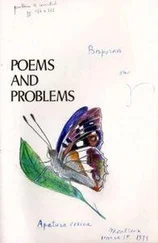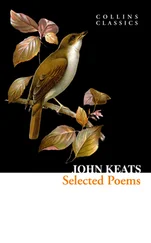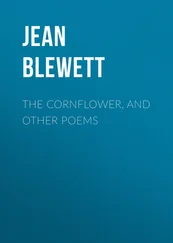John Keats - Poems 1817
Здесь есть возможность читать онлайн «John Keats - Poems 1817» весь текст электронной книги совершенно бесплатно (целиком полную версию без сокращений). В некоторых случаях можно слушать аудио, скачать через торрент в формате fb2 и присутствует краткое содержание. Год выпуска: 2005, Жанр: Поэзия, на английском языке. Описание произведения, (предисловие) а так же отзывы посетителей доступны на портале библиотеки ЛибКат.
- Название:Poems 1817
- Автор:
- Жанр:
- Год:2005
- ISBN:нет данных
- Рейтинг книги:4 / 5. Голосов: 1
-
Избранное:Добавить в избранное
- Отзывы:
-
Ваша оценка:
- 80
- 1
- 2
- 3
- 4
- 5
Poems 1817: краткое содержание, описание и аннотация
Предлагаем к чтению аннотацию, описание, краткое содержание или предисловие (зависит от того, что написал сам автор книги «Poems 1817»). Если вы не нашли необходимую информацию о книге — напишите в комментариях, мы постараемся отыскать её.
Poems 1817 — читать онлайн бесплатно полную книгу (весь текст) целиком
Ниже представлен текст книги, разбитый по страницам. Система сохранения места последней прочитанной страницы, позволяет с удобством читать онлайн бесплатно книгу «Poems 1817», без необходимости каждый раз заново искать на чём Вы остановились. Поставьте закладку, и сможете в любой момент перейти на страницу, на которой закончили чтение.
Интервал:
Закладка:
XII.
On leaving some Friends at an early Hour.
Give me a golden pen, and let me lean
On heap'd up flowers, in regions clear, and far;
Bring me a tablet whiter than a star,
Or hand of hymning angel, when 'tis seen
The silver strings of heavenly harp atween:
And let there glide by many a pearly car,
Pink robes, and wavy hair, and diamond jar,
And half discovered wings, and glances keen.
The while let music wander round my ears.
And as it reaches each delicious ending,
Let me write down a line of glorious tone,
And full of many wonders of the spheres:
For what a height my spirit is contending!
'Tis not content so soon to be alone.
XIII.
ADDRESSED TO HAYDON.
Highmindedness, a jealousy for good,
A loving-kindness for the great man's fame,
Dwells here and there with people of no name,
In noisome alley, and in pathless wood:
And where we think the truth least understood,
Oft may be found a "singleness of aim,"
That ought to frighten into hooded shame
A money mong'ring, pitiable brood.
How glorious this affection for the cause
Of stedfast genius, toiling gallantly!
What when a stout unbending champion awes
Envy, and Malice to their native sty?
Unnumber'd souls breathe out a still applause,
Proud to behold him in his country's eye.
XIV.
ADDRESSED TO THE SAME.
Great spirits now on earth are sojourning;
He of the cloud, the cataract, the lake,
Who on Helvellyn's summit, wide awake,
Catches his freshness from Archangel's wing:
He of the rose, the violet, the spring.
The social smile, the chain for Freedom's sake:
And lo!—whose stedfastness would never take
A meaner sound than Raphael's whispering.
And other spirits there are standing apart
Upon the forehead of the age to come;
These, these will give the world another heart,
And other pulses. Hear ye not the hum
Of mighty workings?——————
Listen awhile ye nations, and be dumb.
XV.
On the Grasshopper and Cricket.
The poetry of earth is never dead:
When all the birds are faint with the hot sun,
And hide in cooling trees, a voice will run
From hedge to hedge about the new-mown mead;
That is the Grasshopper's—he takes the lead
In summer luxury,—he has never done
With his delights; for when tired out with fun
He rests at ease beneath some pleasant weed.
The poetry of earth is ceasing never:
On a lone winter evening, when the frost
Has wrought a silence, from the stove there shrills
The Cricket's song, in warmth increasing ever,
And seems to one in drowsiness half lost,
The Grasshopper's among some grassy hills.
December 30, 1816.
XVI.
TO KOSCIUSKO.
Good Kosciusko, thy great name alone
Is a full harvest whence to reap high feeling;
It comes upon us like the glorious pealing
Of the wide spheres—an everlasting tone.
And now it tells me, that in worlds unknown,
The names of heroes, burst from clouds concealing,
And changed to harmonies, for ever stealing
Through cloudless blue, and round each silver throne.
It tells me too, that on a happy day,
When some good spirit walks upon the earth,
Thy name with Alfred's, and the great of yore
Gently commingling, gives tremendous birth
To a loud hymn, that sounds far, far away
To where the great God lives for evermore.
XVII.
Happy is England! I could be content
To see no other verdure than its own;
To feel no other breezes than are blown
Through its tall woods with high romances blent:
Yet do I sometimes feel a languishment
For skies Italian, and an inward groan
To sit upon an Alp as on a throne,
And half forget what world or worldling meant.
Happy is England, sweet her artless daughters;
Enough their simple loveliness for me,
Enough their whitest arms in silence clinging:
Yet do I often warmly burn to see
Beauties of deeper glance, and hear their singing,
And float with them about the summer waters.
SLEEP AND POETRY
"As I lay in my bed slepe full unmete
Was unto me, but why that I ne might
Rest I ne wist, for there n'as erthly wight
[As I suppose] had more of hertis ese
Than I, for I n'ad sicknesse nor disese."
CHAUCER.What is more gentle than a wind in summer?
What is more soothing than the pretty hummer
That stays one moment in an open flower,
And buzzes cheerily from bower to bower?
What is more tranquil than a musk-rose blowing
In a green island, far from all men's knowing?
More healthful than the leafiness of dales?
More secret than a nest of nightingales?
More serene than Cordelia's countenance?
More full of visions than a high romance?
What, but thee Sleep? Soft closer of our eyes!
Low murmurer of tender lullabies!
Light hoverer around our happy pillows!
Wreather of poppy buds, and weeping willows!
Silent entangler of a beauty's tresses!
Most happy listener! when the morning blesses
Thee for enlivening all the cheerful eyes
That glance so brightly at the new sun-rise.
But what is higher beyond thought than thee?
Fresher than berries of a mountain tree?
More strange, more beautiful, more smooth, more regal,
Than wings of swans, than doves, than dim-seen eagle?
What is it? And to what shall I compare it?
It has a glory, and nought else can share it:
The thought thereof is awful, sweet, and holy,
Chacing away all worldliness and folly;
Coming sometimes like fearful claps of thunder,
Or the low rumblings earth's regions under;
And sometimes like a gentle whispering
Of all the secrets of some wond'rous thing
That breathes about us in the vacant air;
So that we look around with prying stare,
Perhaps to see shapes of light, aerial lymning,
And catch soft floatings from a faint-heard hymning;
To see the laurel wreath, on high suspended,
That is to crown our name when life is ended.
Sometimes it gives a glory to the voice,
And from the heart up-springs, rejoice! rejoice!
Sounds which will reach the Framer of all things,
And die away in ardent mutterings.
No one who once the glorious sun has seen,
And all the clouds, and felt his bosom clean
For his great Maker's presence, but must know
What 'tis I mean, and feel his being glow:
Therefore no insult will I give his spirit,
By telling what he sees from native merit.
O Poesy! for thee I hold my pen
That am not yet a glorious denizen
Of thy wide heaven—Should I rather kneel
Upon some mountain-top until I feel
A glowing splendour round about me hung,
And echo back the voice of thine own tongue?
O Poesy! for thee I grasp my pen
That am not yet a glorious denizen
Of thy wide heaven; yet, to my ardent prayer,
Yield from thy sanctuary some clear air,
Smoothed for intoxication by the breath
Of flowering bays, that I may die a death
Of luxury, and my young spirit follow
The morning sun-beams to the great Apollo
Like a fresh sacrifice; or, if I can bear
The o'erwhelming sweets, 'twill bring to me the fair
Visions of all places: a bowery nook
Will be elysium—an eternal book
Whence I may copy many a lovely saying
About the leaves, and flowers—about the playing
Of nymphs in woods, and fountains; and the shade
Keeping a silence round a sleeping maid;
And many a verse from so strange influence
That we must ever wonder how, and whence
It came. Also imaginings will hover
Round my fire-side, and haply there discover
Vistas of solemn beauty, where I'd wander
In happy silence, like the clear meander
Through its lone vales; and where I found a spot
Of awfuller shade, or an enchanted grot,
Or a green hill o'erspread with chequered dress
Of flowers, and fearful from its loveliness,
Write on my tablets all that was permitted,
All that was for our human senses fitted.
Then the events of this wide world I'd seize
Like a strong giant, and my spirit teaze
Till at its shoulders it should proudly see
Wings to find out an immortality.
Интервал:
Закладка:
Похожие книги на «Poems 1817»
Представляем Вашему вниманию похожие книги на «Poems 1817» списком для выбора. Мы отобрали схожую по названию и смыслу литературу в надежде предоставить читателям больше вариантов отыскать новые, интересные, ещё непрочитанные произведения.
Обсуждение, отзывы о книге «Poems 1817» и просто собственные мнения читателей. Оставьте ваши комментарии, напишите, что Вы думаете о произведении, его смысле или главных героях. Укажите что конкретно понравилось, а что нет, и почему Вы так считаете.












